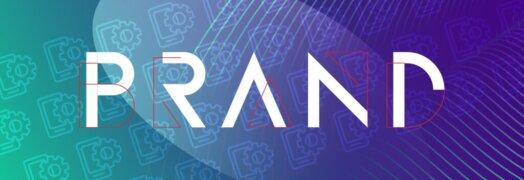Are you considering a Facebook advertising campaign for your small business? Before you get started you first need to consider the goal of advertising on Facebook. Do you want to generate more traffic to your website, get more leads, increase brand exposure, or simply to get more fans to like your business page? The good news is that you can achieve any one of these goals with Facebook advertising. Once you have chosen your goal you can then begin developing a successful Pay-Per-Click (PPC) strategy.
Follow the steps and tips below to create your campaign:
- Destination
One of the first steps is to choose the destination for your ads. In other words, the landing page for where people visit after clicking on your ad. The destination can be your website, a specific post, your company page, event, or an application. The application destination is only relevant if you have created a custom application for your business on Facebook. - Promotion
Next, you simply choose what you want to promote. You can promote your company page, a specific post, a new ad about your company, or stories about friends liking your page. If your goal is to generate new likes and traffic to your page, then choose to promote your page or a specific post on the page. If your goal is to drive traffic to your website or get new leads then choosing a landing page on your website will be the best way to achieve these results. - What People Will See
Your third step in the set up process is to choose what type of ad your audience will see. The following are options for your ad creative based upon what you decide to promote:- A new ad about your page – by default the headline will be your company page name and you can choose your own text and image.
- Stories about friends liking your page – for this particular ad your ad will be automatically created based on the actions friends took on the page. These ads are typically a great way to build new likes for a page because the ad will be shown to friends of the people that like your page.
- A post on your page – here you get to choose from your most recent post/updates on your page. This type of ad seems to perform best if you frequently share educational information that has broad appeal. You can either choose one particular post or keep the ad automatically updated with your most recent post.
- External URL – if you choose to build an ad sending people to an external url from Facebook you have a lot more options for the ad creative. After you enter the destination url you can have Facebook suggest an ad based on the destination url, or you can create your own ad below. If you decide to make your own ad, the following are the needed materials: headline, text and image. As with all online advertising we suggest creating a few variations of the ad to test out your messaging and images to develop the most successful ad.
- Choosing An Audience
Choosing the target audience for your ad campaign is extremely important to determining the success of your campaign. If you develop an audience that is too broad we’ve found that your ads are rarely shown. It is usually best to set up very targeted ad groups to achieve the best results, the more specific the audience the better you can tailor your advertising message. For instance, if you specific target women, ages 20-30, in San Diego your message will most likely be very different than if the audience you were targeting was men, ages 40-50, in Minneapolis.As you select your audience keep an eye on the right column to see your target audience size adjust as you make modifications. The following are criteria you can use to find your target audience:- Location – like many other PPC platforms you can choose to segment the audience by country, state/province, city or zip code.
- Age – you can require an exact age match or choose an age range.
- Gender – choose to target by gender.
- Precise interests – this is a great way to find a segment of people that are interested in your products or services. Simply type in interests that are related to your business and choose the topics and interests that match your offerings. As you select interests Facebook will provide similar likes and interests to help you build a robust list.
- Broad categories – use the broad categories tool to easily find segments of people. The following are a few of the available categories: activities, ethnic, events, family status, music, business/technology, etc….
- Campaign and Budget
After your ad and audience are finalized the last steps are to name the campaign, set the budget, and schedule the campaign. We suggest choosing the Cost Per Click (CPC) option for pricing so you only get charged when people click on the ads. - Additional PPC Tips
- To copy an existing ad simply click on the name of the ad and click on “create a similar ad” at the bottom of the ad preview.
- Set up weekly performance monitoring to see which ads are doing the best. Use this information to pause weak ads, or to develop better ads.
- Don’t be afraid to experiment with new ad variations or your target audience.
- If you are running ads to promote your page or posts then check out the Insights tab on your company page to see just how many new likes or activity are from your sponsored ads.



